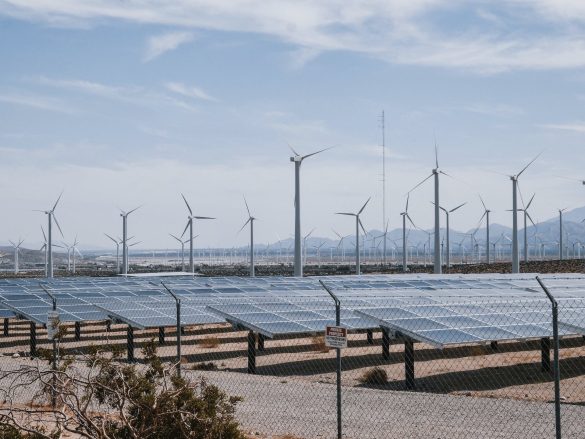Nigeria faces a major challenge of providing reliable and sustainable electricity to its growing population of over 200 million. According to the World Bank, only about 60% of Nigerians have access to grid electricity, and the average daily power supply is less than 10 hours. The country relies heavily on fossil fuels, especially natural gas, for its power generation, contributing to greenhouse gas emissions and climate change.
To address this challenge, Nigeria has set a goal of achieving universal energy access by 2030 and reducing its carbon footprint by 20% 2030 and 50% by 2050. To achieve this goal, the country must diversify its energy sources and invest in renewable energy technologies, such as solar, wind, hydro, biomass, and geothermal. Renewable energy can provide clean, affordable, and reliable electricity to millions of Nigerians, especially in rural areas, and create new jobs and economic opportunities.
However, the transition to renewable energy is not without its obstacles. The renewable energy sector faces several barriers, such as a lack of adequate infrastructure, financing, policy, and regulatory frameworks, as well as low awareness and acceptance among consumers and stakeholders. To overcome these barriers, the sector needs to mobilize more resources, build more capacity, and foster more collaboration and innovation.
This was the focus of a recent session of energy experts convened by The Electricity Hub (TEH), a platform that promotes dialogue and action on Nigeria’s energy sector. The session, titled “Tackling Nigeria’s Energy Transition Vulnerabilities”, discussed the opportunities and challenges of the energy transition in relation to people and economic development.
The panelists included Ruchi Soni, the Programme Manager of African Carbon Initiatives at Sustainable Energy for All (SEforALL), Andrew Echono, the Country Director of the US African Development Foundation (USADF), Engr. Barka Sajou, the Executive Director of Technical Services at the Rural Electrification Agency (REA), and Dr. Ndubuisi Nwokolo, the Partner at Security, Peace, and Development of the Nextier Group, moderated the session.
The panelists agreed that the renewable energy sector has seen significant growth and acceptance in Nigeria in recent years, driven by the increasing demand for electricity, the decreasing cost of renewable energy technologies, and the rising awareness of the environmental and social benefits of renewable energy. They also highlighted some of the achievements and initiatives of the sector, such as the Nigeria Electrification Project, which aims to provide electricity to 25 million people through off-grid solutions, the Nigeria Energy Transition Plan, which outlines the pathway for achieving net-zero emissions by 2060, and the Africa Carbon Markets Initiative, which aims to scale up the voluntary carbon market in Africa and generate revenue and jobs from carbon credits.
The panelists also identified some of the key vulnerabilities and risks that the sector faces, such as the potential displacement and unemployment of workers in the fossil fuel industry, the saturation and competition in the on-grid market, the lack of consistent and clear standards and regulations for the quality and integrity of renewable energy products and services, and the need for more data and monitoring of the impact and performance of renewable energy projects.
To mitigate these vulnerabilities and risks, the panelists suggested some possible solutions, such as developing an integrated resource plan that balances the supply and demand of energy sources, investing in skills development and education to prepare the workforce for the energy transition, promoting local manufacturing and innovation to reduce the dependence on imported technologies and materials, and engaging with various stakeholders, such as government, private sector, development partners, and communities, to ensure the sustainability and inclusiveness of the energy transition.
The panelists concluded that the renewable energy sector has a huge potential to transform Nigeria’s energy landscape and contribute to its social and economic development. They urged the sector to seize the opportunities and address the challenges of the energy transition and called for more collaboration and action among all the actors involved.
Source: This Day Live



